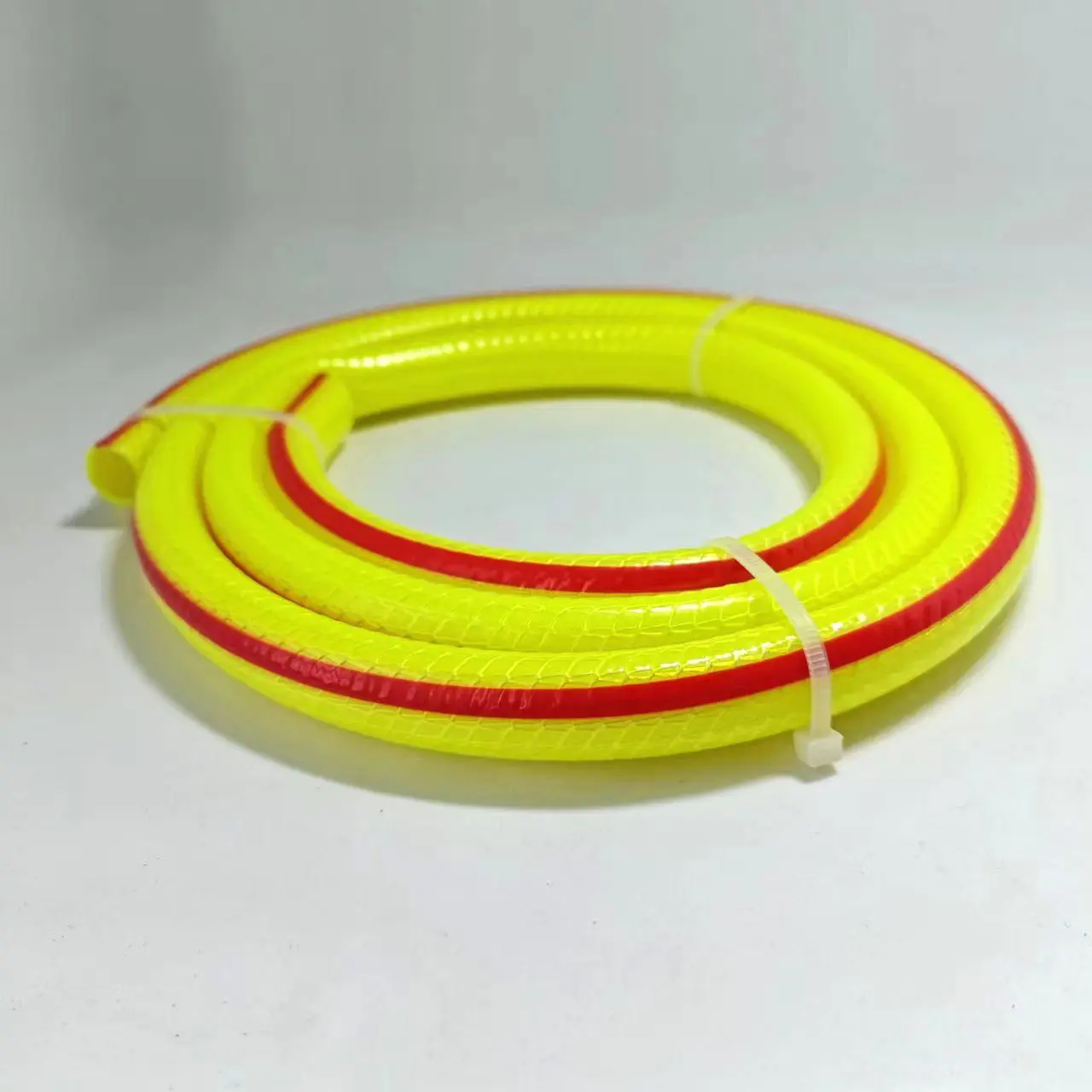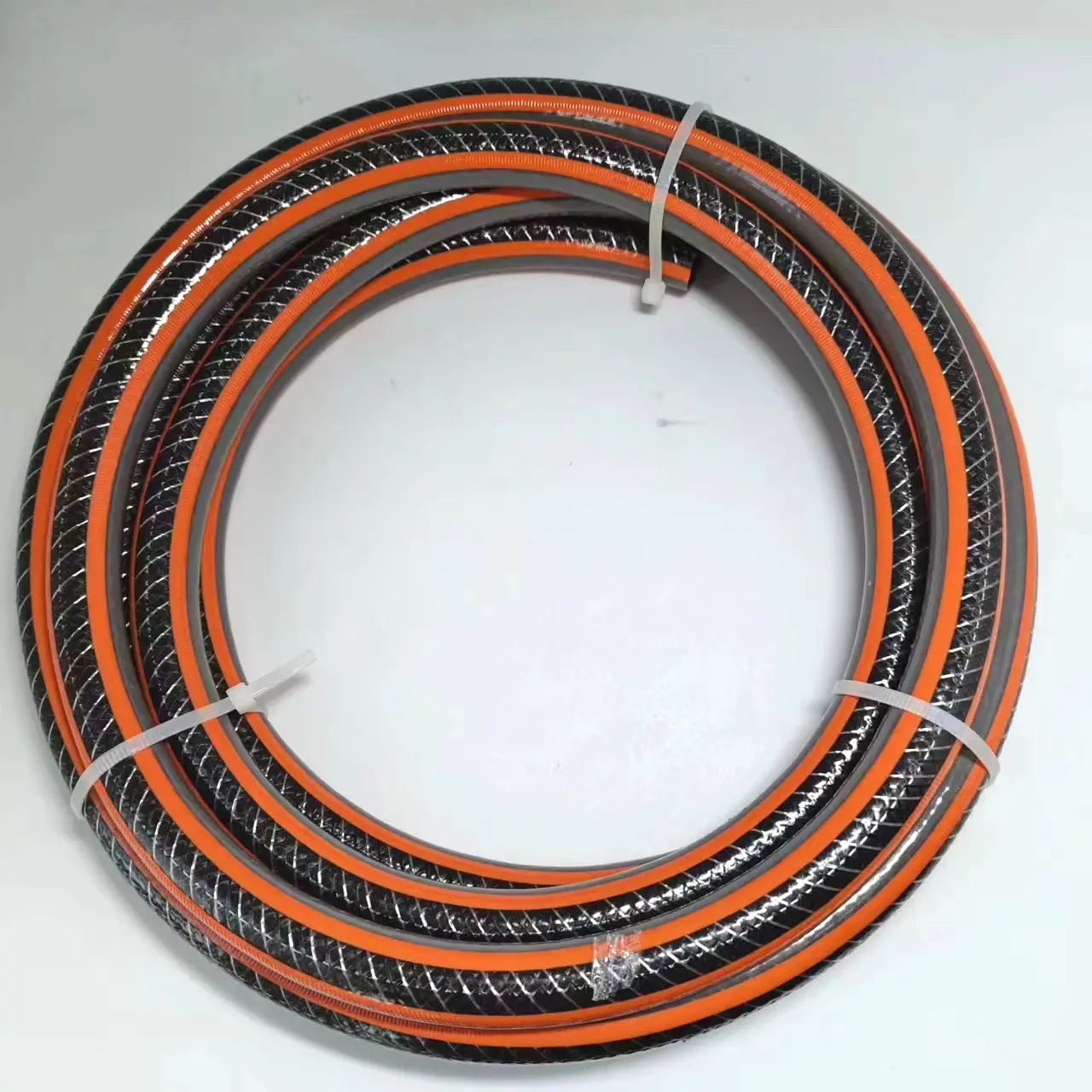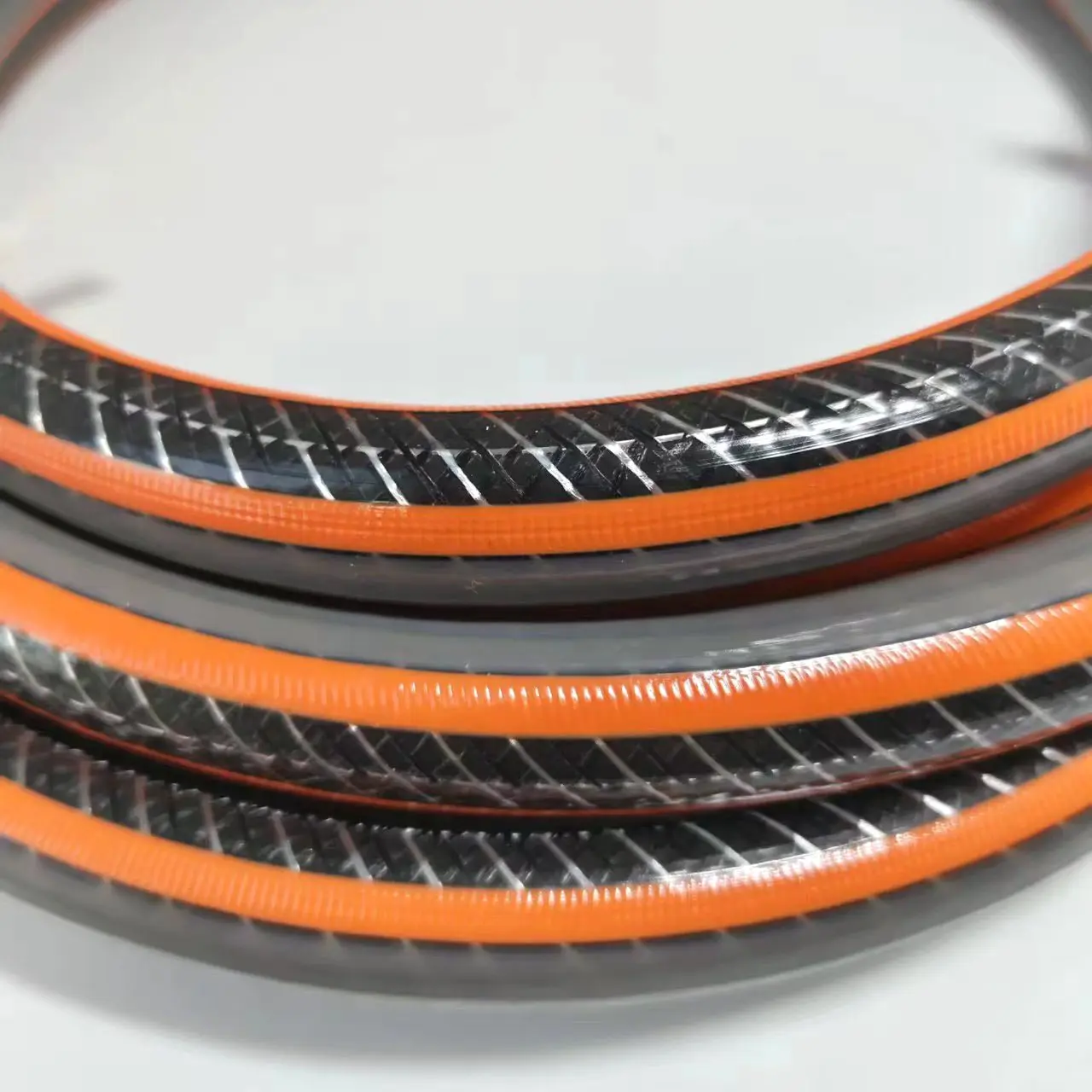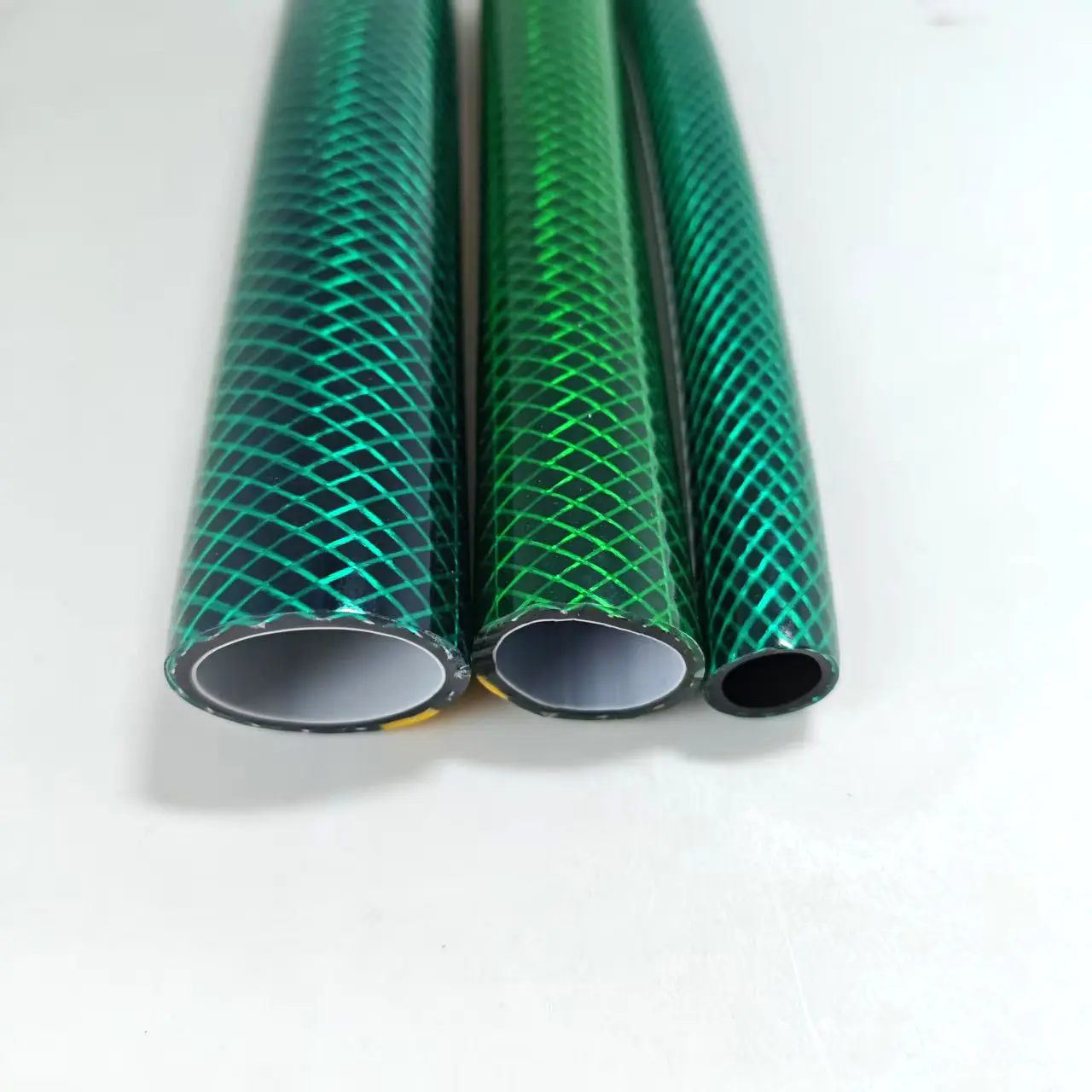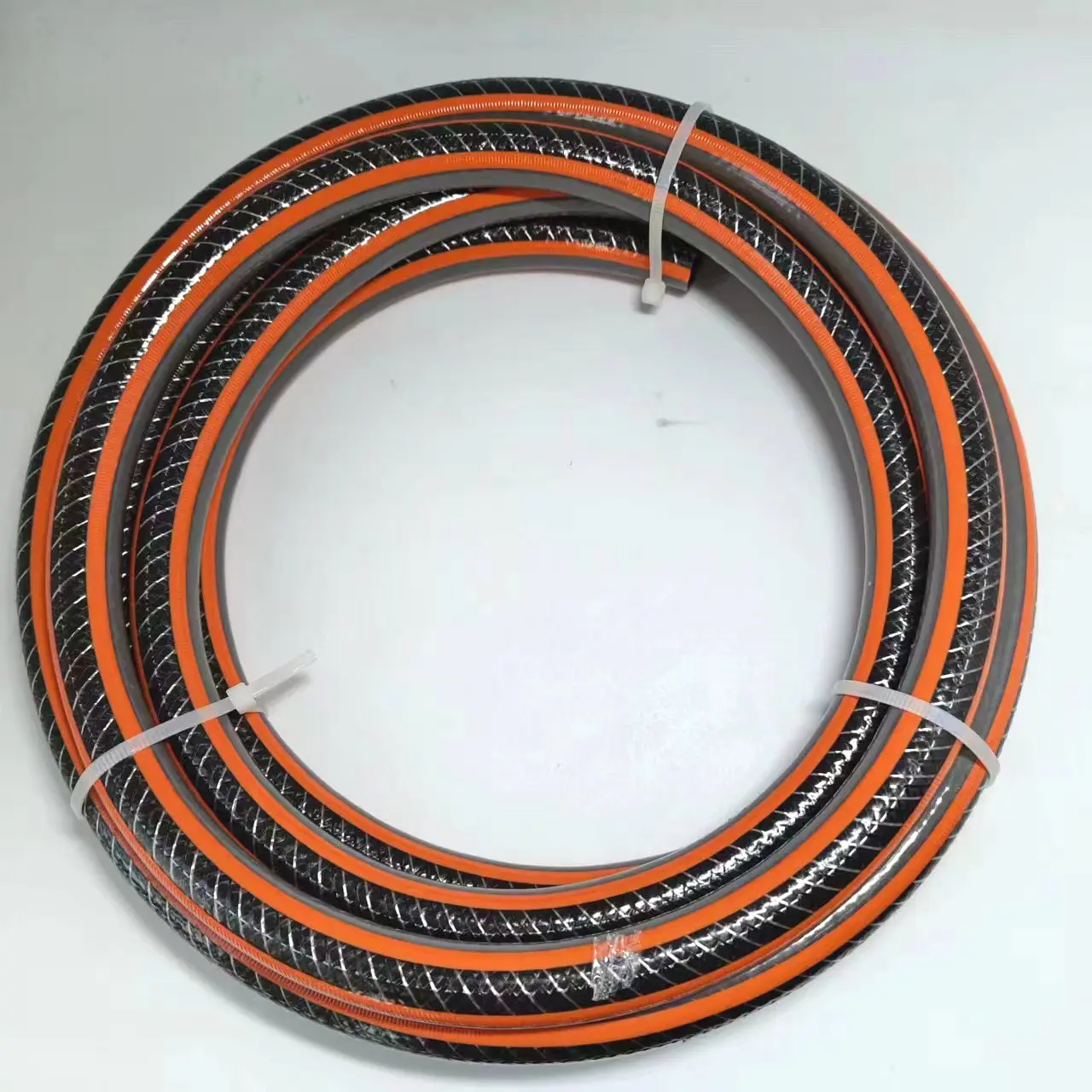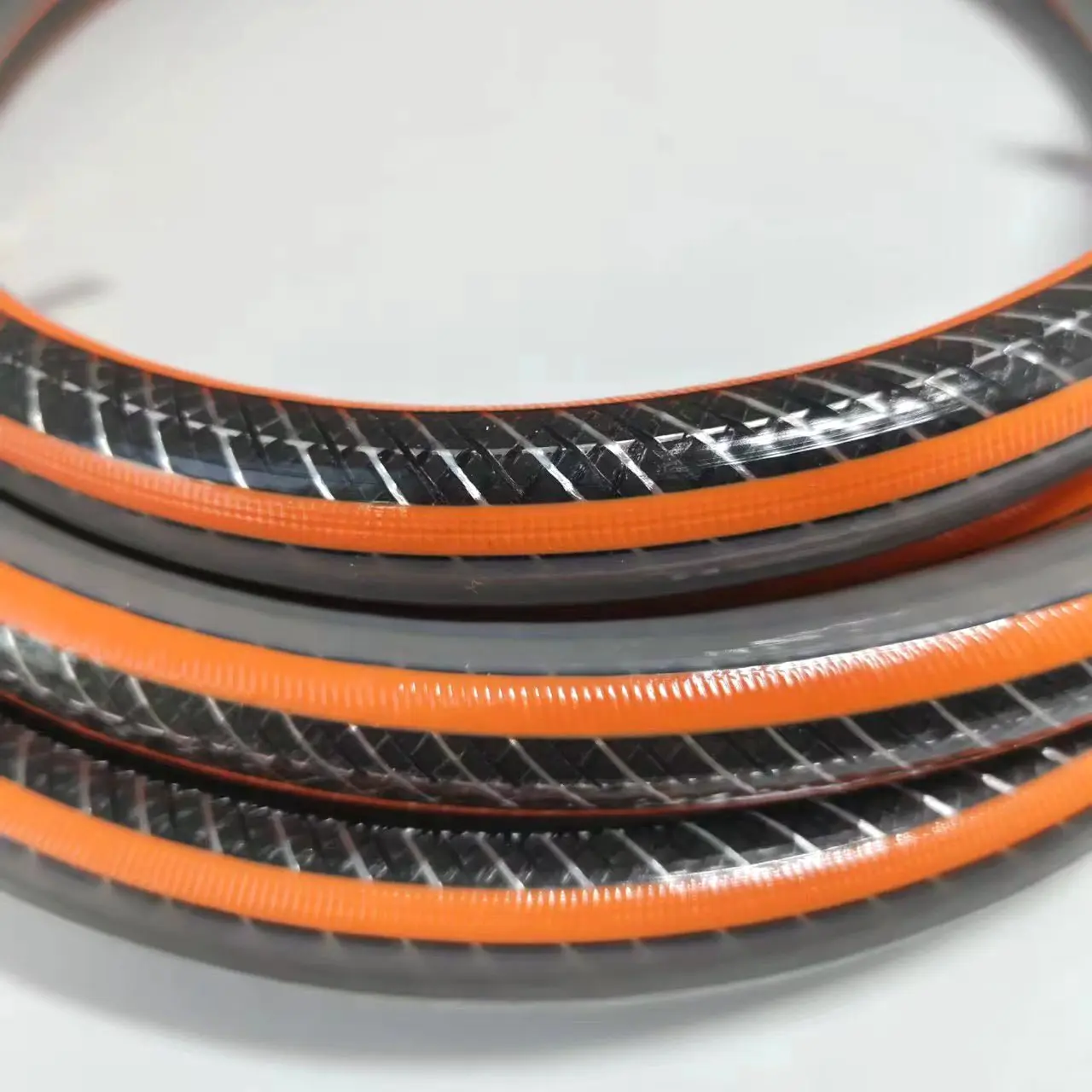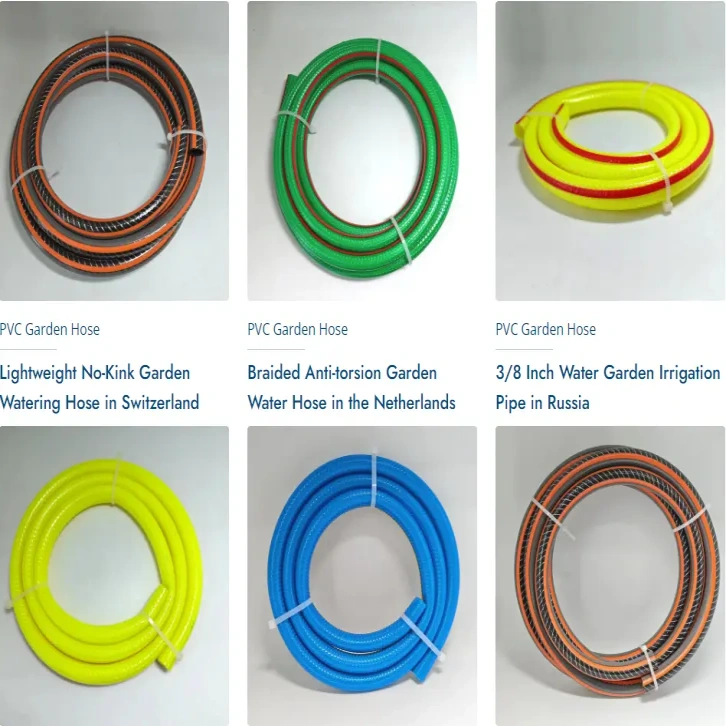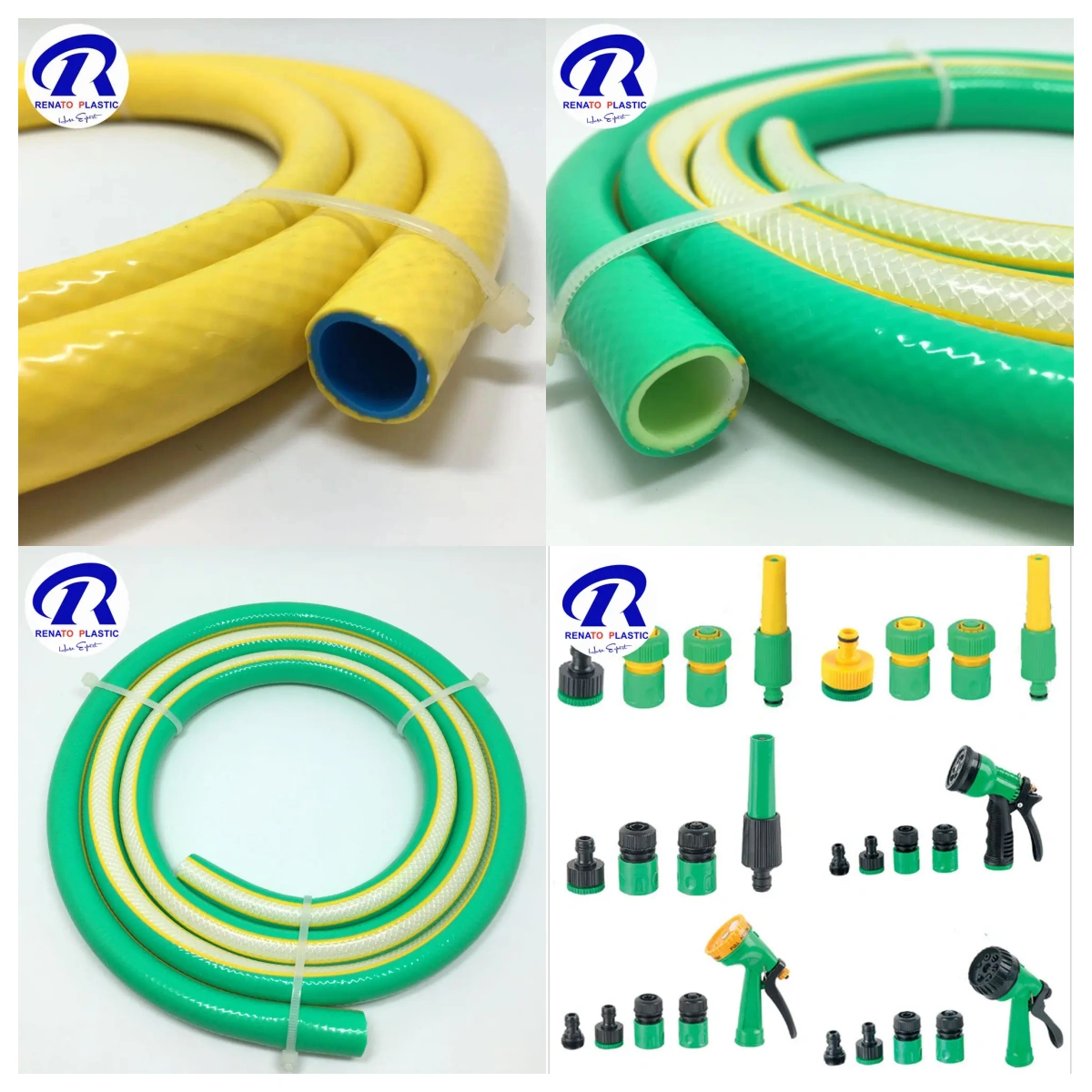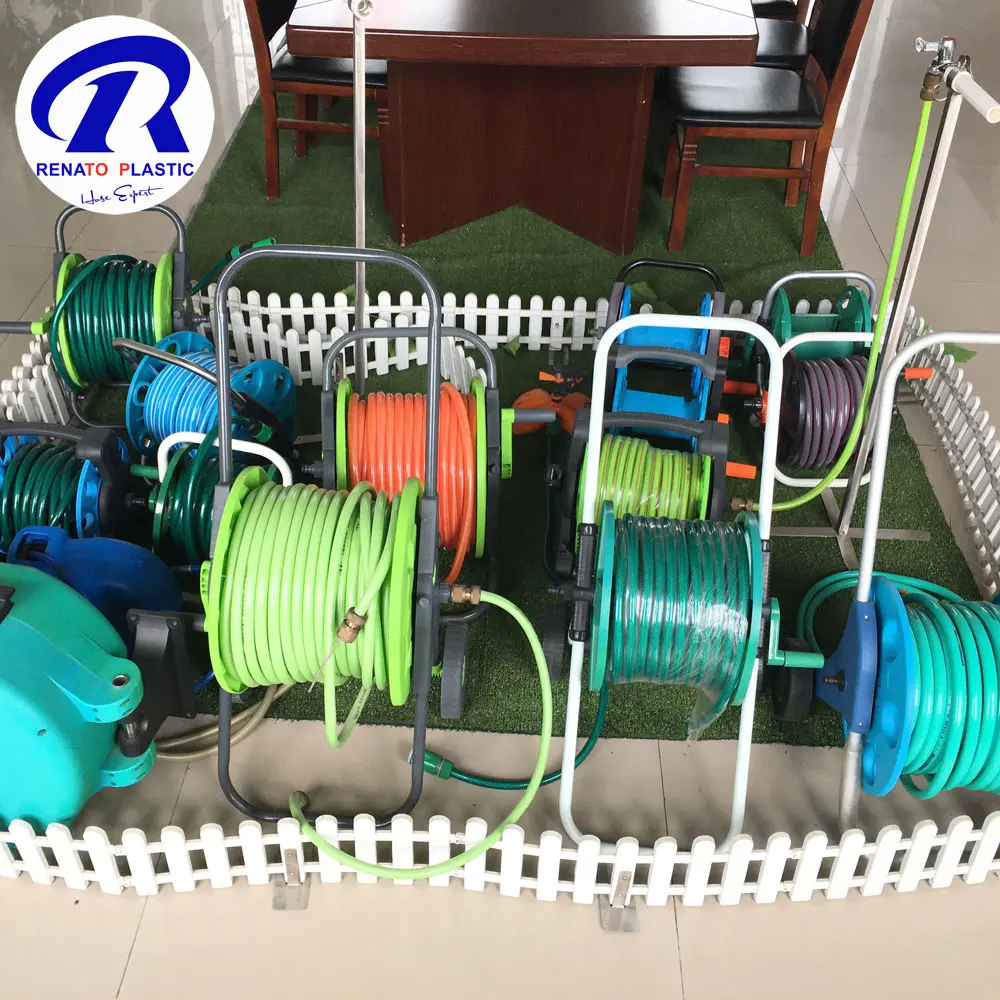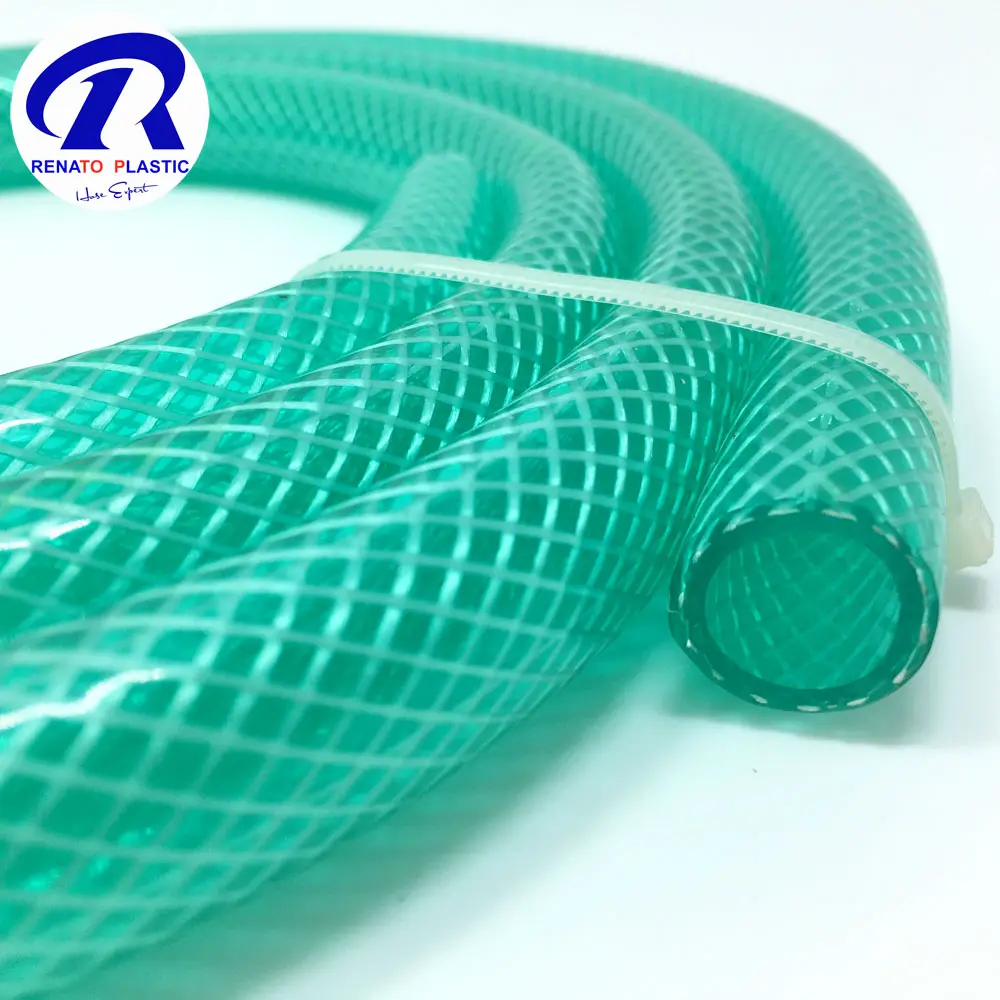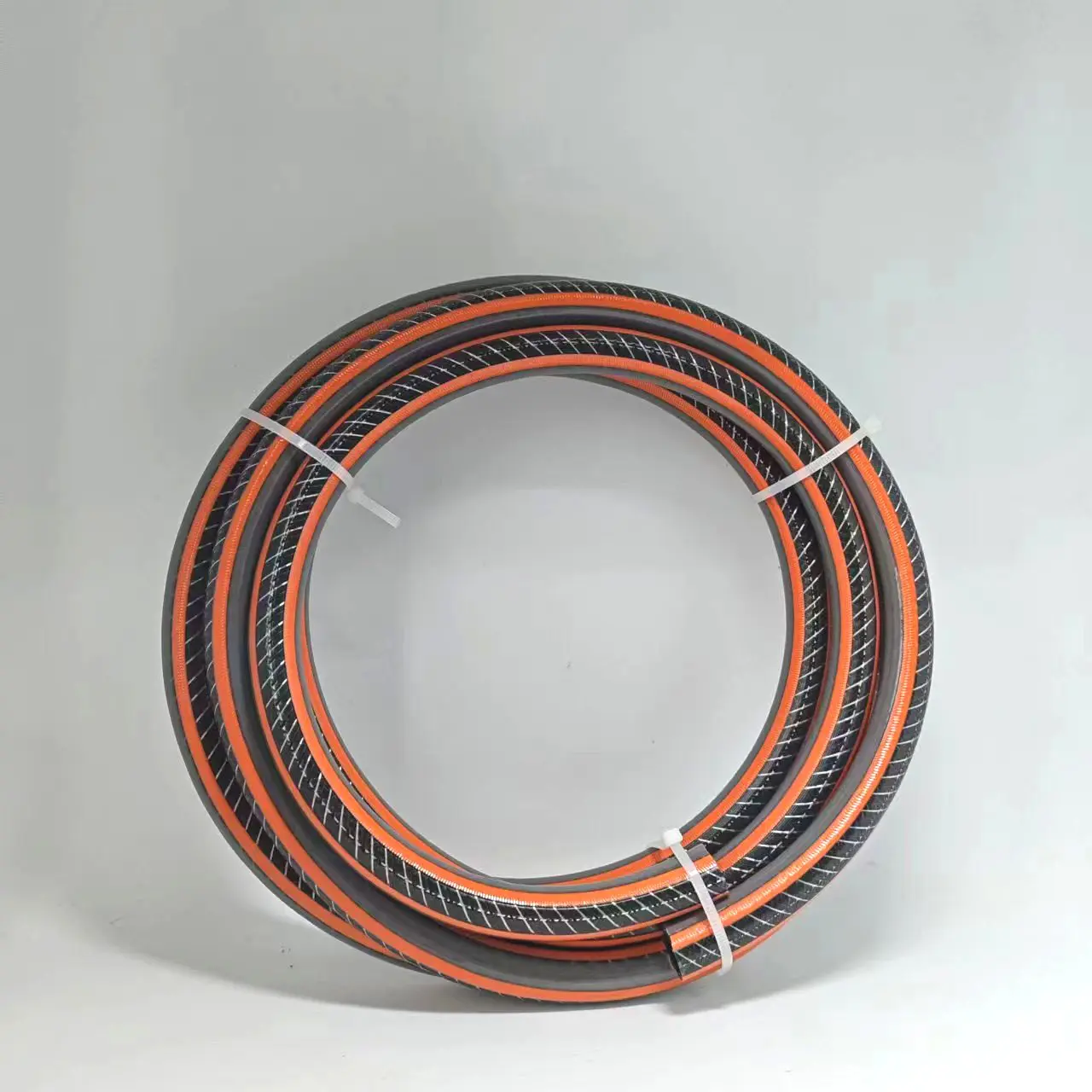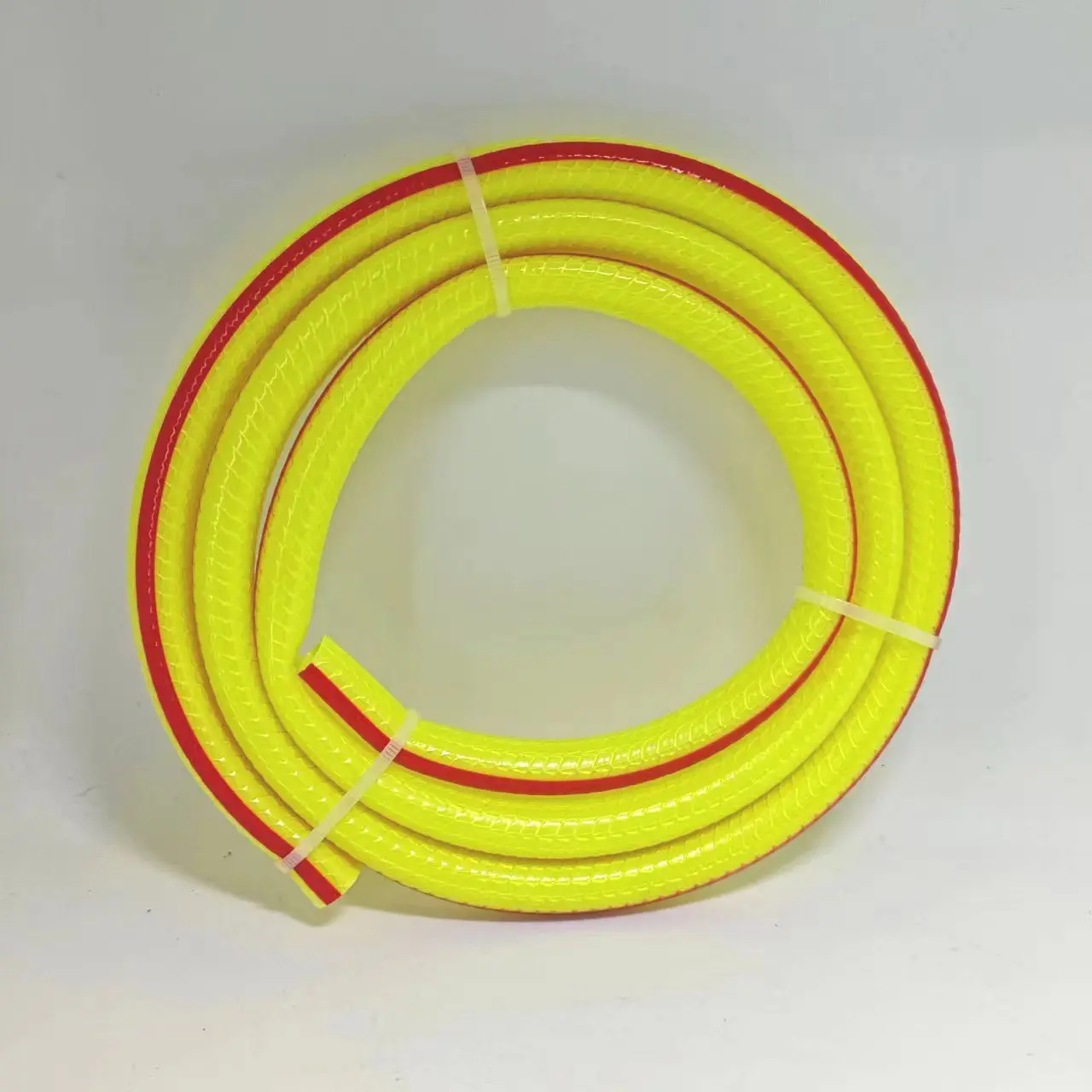Material and Basic Features
PVC (polyvinyl chloride) is a synthetic plastic polymer known for its flexibility and durability. Unlike rubber hoses, PVC hoses are lighter, making them easier to move around the garden. They are resistant to weather conditions, including sunlight and moderate temperature changes, though extreme cold can make them stiff.
In Russia, where winters are harsh, users often store PVC hoses indoors during freezing months to prevent cracking. The material does not degrade easily under normal UV exposure, but prolonged direct sunlight may eventually weaken it over time. Since PVC is non-toxic, it is safe for watering edible plants, which is important for Russian gardeners who grow their own vegetables in dachas (summer cottages).
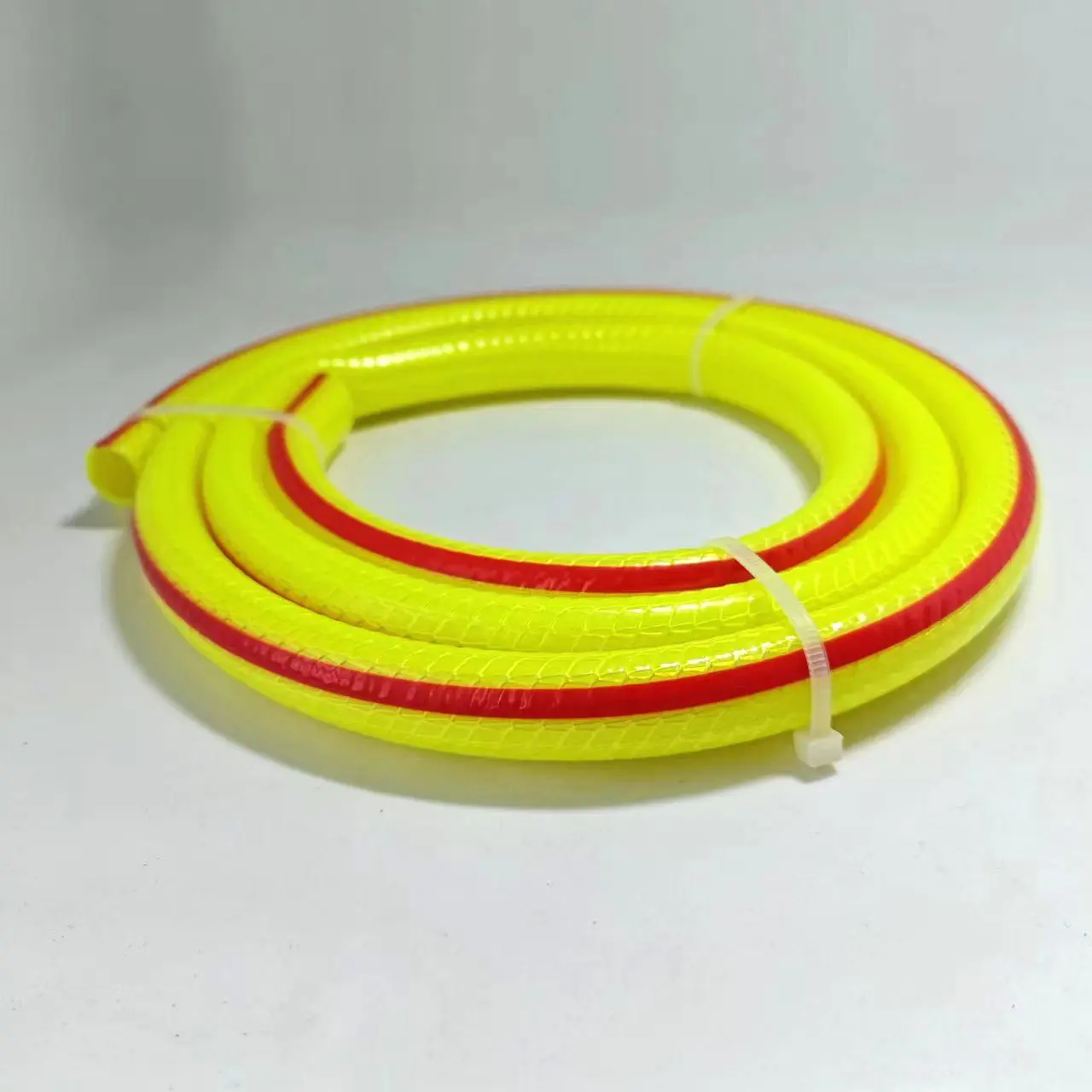
Common Uses in Gardening and Household Tasks
Watering plants – Their lightweight nature makes them easy to drag across lawns and flower beds.
Car washing – Many Russians use them to clean vehicles, as they provide sufficient water flow without being too heavy.
Outdoor cleaning – Ideal for washing patios, sidewalks, and garden furniture.
Filling pools and ponds – Commonly used in Russian households with small backyard pools or decorative ponds.
Unlike heavy-duty industrial hoses, PVC hoses are not designed for high-pressure tasks but work well for everyday gardening needs. In rural Russian areas, where gardening is a common hobby, these hoses are a practical choice due to their affordability and ease of use.
Advantages Over Other Types of Hoses
PVC hoses have several benefits compared to rubber or reinforced hoses:
| Feature | PVC Hose | Rubber Hose | Reinforced Hose |
|---|---|---|---|
| Weight | Light | Heavy | Medium |
| Cost | Low | High | Medium |
| Flexibility | Good (when warm) | Excellent | Stiff |
| Maintenance | Easy (no special care) | Requires storage care | Moderate care needed |
For Russian consumers, the low cost is a major advantage, especially since many households maintain large garden plots. Rubber hoses are more durable but are also more expensive, making PVC a budget-friendly alternative. Additionally, PVC hoses do not kink as easily as some lightweight hybrid hoses, which is useful when maneuvering around trees and garden decorations.
Limitations and Considerations
While PVC hoses are useful, they have some drawbacks:
Cold weather sensitivity – In Russia’s freezing temperatures, PVC becomes brittle and may crack if left outside.
Not suitable for hot water – They can deform if exposed to high-temperature water.
Moderate durability – They are less abrasion-resistant than rubber hoses and can puncture if dragged over sharp objects.
Russian users often reinforce connection points with tape to prevent leaks, as repeated attaching and detaching can weaken the hose ends. Storing them coiled in a shed or garage during winter helps extend their lifespan.
Popular Hose Lengths and Diameters
PVC garden hoses come in various lengths and diameters to suit different needs:
Short hoses (10-15 meters) – Ideal for small gardens or balconies, common in Russian urban homes.
Medium-length hoses (20-25 meters) – Suitable for average-sized dacha gardens.
Wider diameters (½ inch or more) – Provide better water flow for larger areas.
Russians often choose medium-length hoses since many households have moderate-sized garden plots. The diameter selection depends on water pressure, which can vary in rural areas.
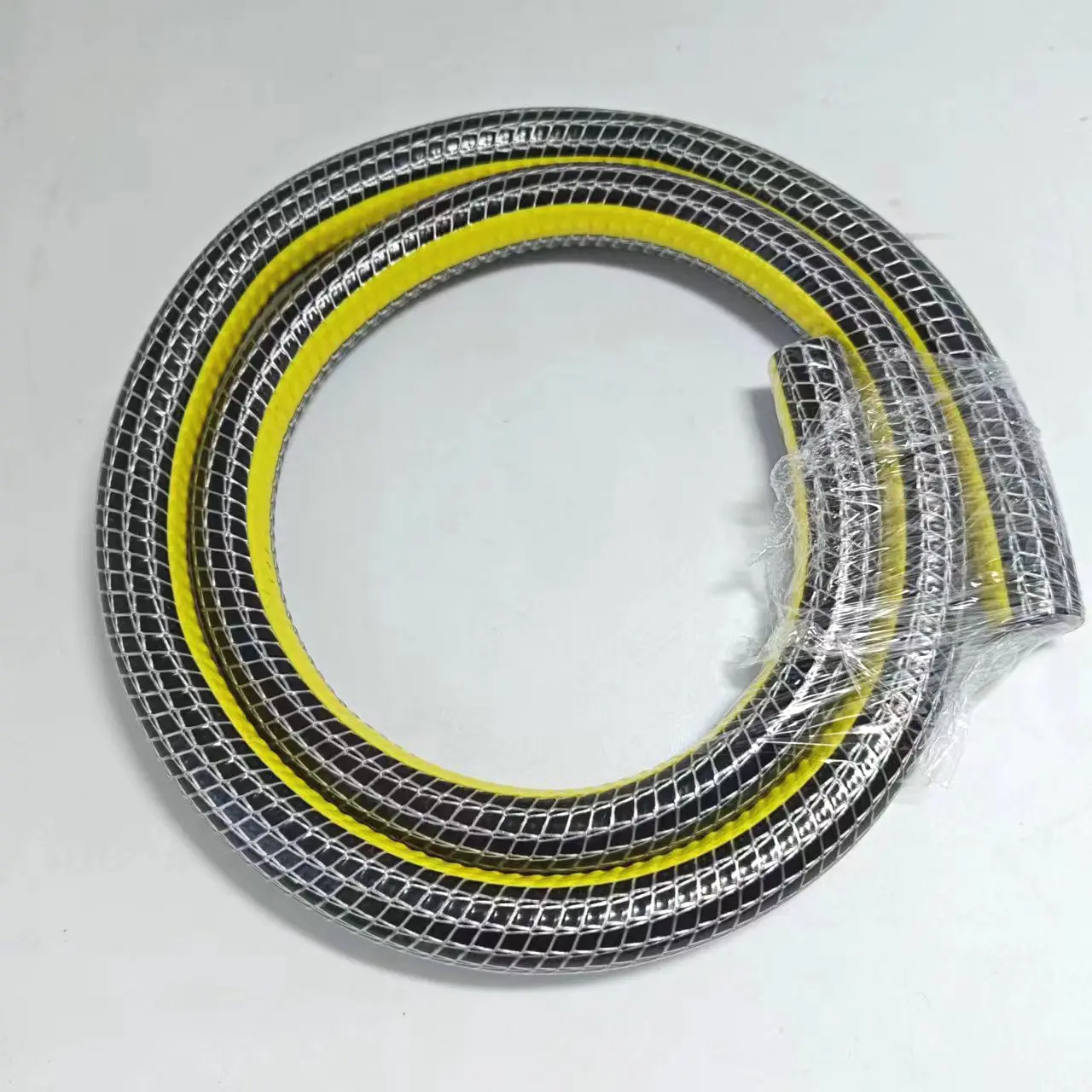
Maintenance and Storage Tips
Proper care can extend the life of a PVC hose:
Drain after use – Prevents water from freezing inside in cold weather.
Avoid sharp bends – Kinks can lead to weak spots over time.
Store in shade – Reduces UV damage during summer months.
In Russia, where seasonal changes are extreme, proper storage is crucial. Many users hang their hoses on wall-mounted hooks in garages or sheds to keep them neatly coiled and protected from frost.
PVC Garden Hoses in the Russian Market
In Russia, PVC garden hoses are widely available and commonly used due to their affordability. They are especially popular among dacha owners who need a cost-effective solution for seasonal gardening. Local manufacturers produce a variety of models, often sold in hardware stores and markets.
Since Russia has diverse climates—from the cold Arctic regions to warmer southern areas—consumers in milder regions can use PVC hoses for longer periods, while those in Siberia must store them carefully in winter. The demand remains steady, particularly in spring and summer when gardening activities peak.
Conclusion
PVC garden hoses are a practical choice for everyday watering and cleaning tasks. While they have some limitations in extreme cold, their lightweight design and low cost make them a preferred option for many Russian households. By following proper maintenance practices, users can maximize their hose’s lifespan and efficiency.
